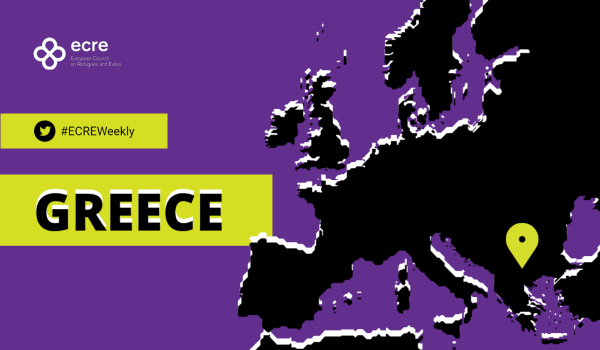As reports and evidence of pushbacks by sea and land continue to mount, a delegation of MEPs is demanding action from the European Commission following a visit to Greece. While arrivals have significantly decreased since the peak in 2015-16, the proportion of people losing their lives attempting to reach Greece has increased.
Reports from refugees and volunteers compiled by Aegean Boat Report reveal that 1,624 boats carrying 43,476 people were pushed back from Greek islands into Turkish waters between 1 January 2017 and 27 September 2022. Meanwhile, Greek policies of systematic pushbacks by land and sea and ignoring of alerts of distress continue. On 20 September Alarm Phone reported several incidents including three people in distress in the Evros region – one sick and vomiting blood and 53 people including five children in distress in the Greek SAR zone off Crete with authorities unresponsive. A video published by Aegean Boat Report reveals the pushback of 35 people near Rhodes by members of the Hellenic Coast Guard on 18 September.
Reportedly, a delegation of MEPs from the Greens/European Free Alliance experienced first-hand the difficulty of accessing the militarized Evros region separating Greece and Türkiye. The delegation was according to the media faced with “silences, heavy atmosphere and obstacles to access certain areas or people”. Ahead of a meeting with Greek Minister for Migration, Notis Mitarachi, German MEP Erik Marquardt stated that the Greek government: “is trying to build a different reality” and raise a “wall of lies”. According to Dutch MEP, Tineke Strik numerous reports from credible sources,” confirms that pushbacks are “happening on a systematic scale”. Further, the delegation pointed out that the European Border and Coast Guard Agency (Frontex) – often criticized over complicity in Greek violations – stays out of areas where pushbacks are believed to take place. “They operate under the command of the Greek authorities. And the Greek authorities decide where (Frontex is) to be operational,” Strik said noting the agency’s failure to provide oversight: “But if there are allegations that are very credible, that in certain areas pushbacks are taking place, why don’t you demand to go and have a look?”. The delegation has launched an EU-wide petition to “freeze funds to countries that are performing pushbacks and make the new migration funds conditional (on) human rights compliance,” and urges infringement procedures from the European Commission against Greece and Croatia. Meanwhile, the Greek Migration Ministry announced it would use EU-funded drones with “Artificial Intelligence” to track people seeking refuge at the border.
In response to claims by Notis Mitarachi that “guarding the border” has led to a drop in loss of human life, Koraki compares proportionality between deaths and arrivals in 2015 and 2016 and 2020 and 2021 (under the present government). Koraki finds that while arrivals have significantly decreased partly as the result of the “government’s illegal and immoral acts” the proportion of mortalities has in fact gone up from one in every 835 people to one in every 66.5 person attempting to reach Greece via the Aegean Sea. Another deadly tragedy on the Aegean occurred on 22 September when a group of 49 survivors reported six people including three children missing from their crossing from the Turkish coast. The Evros border remains deadly as well and on 20 September MEP, Erik Marquardt reported of 20 dead bodies found in two containers in the border region. According to Marquardt, a total of 51 corpses have been recovered in the Evros region in 2022. The Greek government has repeatedly accused Türkiye of instrumentalising migrants and the heated exchange between the neighboring countries continues. At the UN General Assembly, Turkish President Recep Tayyip Erdogan stated that “Greece is turning the Aegean into a cemetery for migrants,” through its “illegal pushbacks”.
According to recent government statistics, the number of people in the Greek reception system has been reduced by more than half (56 per cent) in 2022 compared to 2021. The total number residing in reception facilities amounts to 18,587 as of August 2022, of which 16 per cent (3,190 people) are residing on the islands, and 84 per cent are residing on the mainland – this does not include an unknown number of people unregistered or excluded from reception and often left in destitution and without rights. The Migration and Asylum Ministry stated to media: “The goal and commitment of the Government is the equal and fair distribution of asylum seekers below 1% of the general population, and this has been achieved throughout the country by region, with the exception of the North Aegean Region which amounts to 1.21%”. However, Mitarachi is far from satisfied and on 26 September stated: “Unfortunately, the EU at some point decided that countries of entry … would be used like a parking lot for refugees who want to come to Europe”. The minister pointed to EU applying double standards for Ukrainian refugees and other groups urging increased freedom of movement for all refugees. “If we don’t see progress on the issue of solidarity, a (new deal) won’t make it past the EU Council or lawmakers”, Mitarachi threatened, referring to the European Pact on Migration and Asylum under negotiation.
For further information:
- ECRE, Greece: Pushbacks by Sea and Land, Türkiye an Increasingly ‘Unsafe Third Country’, September 2022
- ECRE, Greece: Government States 150,000 People have been “Averted” but Denies Pushbacks, ‘Safe Third Country’ Inadmissibility Decisions Continue as Hate Crimes are On the Rise in Türkiye, September 2022
This article appeared in the ECRE Weekly Bulletin. You can subscribe to the Weekly Bulletin here.

